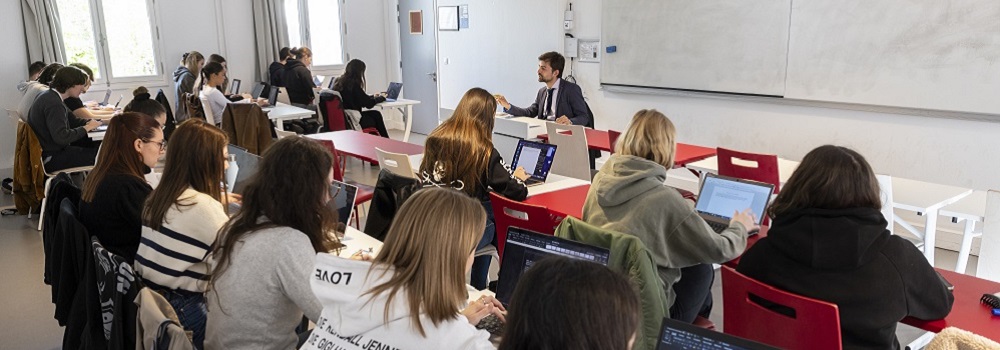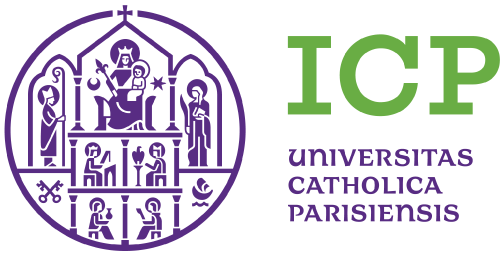Introduction
The decline of interstate warfare, coupled with a significant increase in interdependence, the spread of democracy and the rise of international institutions, collectively contributed to the establishment of a liberal post-Cold War order. Although traditional approaches centered on power dynamics and military dominance are increasingly being contested within both domestic and international spheres due to their financial and human costs, great powers continue to rely on these approaches even if they may no longer be a recipe for success. This course endeavors to explore the intricate transformation of the international system by employing a diverse array of theoretical frameworks and empirical case studies within the field of International Relations. We will delve into how shifts in the global landscape play a pivotal role in shaping policies and influencing leaders to reassess their positions and roles within the international order.
Objectives
By the end of this course, students will be able to:
-understand the key factors contributing to the emergence of a liberal post-Cold War order;
-evaluate and critically analyze traditional approaches within the international system and assess their efficacy;
-apprehend relevant theoretical framework and their applications in the contemporary world;
-to engage in informed discussions and written analyses about the complexities of the international system, and challenges for global governance.
Program
Methods of Instruction
Students are encouraged to participate in class discussions and ask questions that directly relate to the case study that they have chosen. All course content is located on the ICP Moodle (formation.icp.fr). The course will be taught entirely in English (teaching, articles, videos,
Powerpoint, etc.). The course content will address questions related to methodology, theory, techniques related to conflict analysis, and case study analysis.
Assessment and Final Grade
Student continuous assessment (CC) will consist of a group oral presentation and a final written exam.
Oral Presentation = 40%
Students are to prepare a group exposé on a topic provided in class. Group topics, members and dates will be assigned on the first day of class.
Presentation guidelines and expectations:
→ The presentation should not be a summary of any reading material provided or of a specific article or book. Students are expected to conduct research on the assigned topic and must find sources other than those provided in class. The presentation should be no longer than 20 minutes per group. Your group will be stopped if you present for longer than 20 minutes. Power Point presentations are greatly appreciated.
→ The following criteria will be used, but is not limited to the presentation grading:
-clarity and organization of the presented topic;
-quality of the stated research objective;
-quality of analysis provided, and students’ ability to synthesize historical facts;
-use of relevant and examples that support your position and respond to your research objective;
-a proper introduction and conclusion;
-professionalism.
→ Be prepared to present if a group member is absent the day of the presentation. The presentation date will not be modified!
→ To ensure you are fully ready for your oral presentation, it is essential to adhere to the following steps:
-arriving on time to class is imperative to start your presentation smoothly and avoid any disruptions;
-make sure you have your entire presentation on hand before stepping into the classroom (on PC or flash drive). Please refrain from relying on Wi-Fi connectivity for last-minute downloads or access;
-meticulously inspect all components relevant to your presentation including your PC or MAC and necessary video projector adaptors and cables. Ensuring their functionality in advance will prevent any technical glitches during your presentation. (Students may not use my pc for
presentations.)
→ This is typically a group grade.
Final Exam = 60%
The course assessment will be determined by a written final exam worth 60% of the grade. It will be 2 hours long. You will be informed of the final exam’s date by the administration. It will take the form of a 2-hour essay. An (un)justified absence from the final exam will automatically result in failing the course. You will be required to take a make-up exam in May or June.
Exam guidelines and expectations:
→ Students should rely on the course PowerPoint, compulsory readings, course discussions and any content provided on the ICP Moodle (formation.icp.fr). Exam questions will be taken directly from these sources.
→ General knowledge and examples from outside the course are always welcome. However, it is imperative that students demonstrate that they have learned the course material. Any exam completed that contains very little information and/or examples from the course will receive a failing grade (less than 10/20).
→ The following criteria will be used to evaluate the exam: a clearly explained research objective or question, the answers provided to the initial question, argumentation, analysis provided, use of relevant examples, coherence in the organization of the work, the quality of the introduction and conclusion.
→ This is not an English course. Grading is based primarily on how well you convey your ideas on paper. Please be sure proofread your work carefully after completing your exam. Please write clearly in English. Points cannot be awarded if the writing is illegible.
Course Requirements
Attendance:
Course attendance is mandatory, and attendance will be noted at the beginning of each course.
Course notes will not be distributed in any form. Be sure to acquire all information from a colleague when absent.
Punctuality:
Please arrive on time to class. Oral presentations will begin immediately. Students arriving during presentations will be refused entry and must wait until the next break. If you arrive late, it is your responsibility to ensure that you have been marked as present for the course.
Special Accommodations:
All exchange students are guaranteed special accommodation for all in-course examinations. These provisions are designed to facilitate a more equitable and supportive examination experience for international exchange students. These accommodations include: a one-third
time extension for the exam period (20 additional minutes per hour), permission to utilize a dictionary during the exam (Please note that you must provide your own dictionary), and the right to indicate "Exchange student" or "Erasmus" on their exam sheet.
These accommodations underscore our commitment to promoting inclusivity and providing a fair opportunity for all exchange students.
Examination feedback:
All students may consult their final exam copies with their professor after corrections have been completed. Faculty administrators will organize a meeting with the professor for the consultation of exam corrections.
Moreover, students will be provided with a detailed grading rubric the week after their oral presentation.
Plagiarism:
Please do not plagiarize. Plagiarism will be dealt with according to the standards of the ICP.
Course Schedule and Bibliography
CLASS 1 –
Topics → Course Introduction: Global Trends in World Politics
I. Statehood in the International System
The Westphalian System
Sovereignty
Theories on Statehood
Readings: All documents can be found on the ICP platform.
CLASS 2 –
Topics → I. Statehood in the International System (cont.)
Status & Recognition
Strategic Interests in Recognition
Readings:
Hans Agné, “The politics of international recognition: symposium introduction”, International Theory, Vol. 5, No. 1, 2013, p. 94-107.
Steven Patton, “The Peace of Westphalia and its Affects on International Relations, Diplomacy and Foreign Policy”, The Histories, Vol. 10, Issue 1, Article 5, 2019, p. 91-99.
CLASS 3
Topic → II. Conditional Sovereignty & Interventionism
Interference & Interventionism
The UN Charter & Conditional Sovereignty
Just War
Responsibility to Protect (R2P)
Readings: None.
CLASS 4 –
Topics → III. Neo-Realism and the Struggle for Power
Anarchy in the International System
Consequences of Anarchy
The Balance of Power
Alliances
Polarity and (In)Security
Readings:
John J. Mearsheimer, “Reckless States and Realism”, International Relations, Vol. 23, No. 2009, p. 241-256.
CLASS 5 –
Topic → III. Neo-Realism and the Struggle for Power (cont.)
The Security Dilemma
Deterrence
Neo-Realist Conflict and War
Neo-Realist Cooperation and Peace
Readings: None.
CLASS 6 –
Topic → IV. Neo-Liberalism: Agents of Peace?
Westphalian Shortcomings & Evolution
Institutionalism: Facilitating Cooperation
The Normative Approach
Interdependency
Democratic Peace
Neo-Liberalism, War & Peace
Readings:
Jack S. Levy, “Domestic Politics and War”, The Journal of Interdisciplinary History, Vol. 18 No. 4, 1988, p. 653-673.
CLASS 7 –
Topic → VI. Constructivism and the Struggle for Recognition
The Theory of Recognition
Forms of (Mis-)Recognition
Constructivist War & Peace
Readings:
Thomas Lindemann, “Peace Through Recognition: An Interactionist Interpretation of International Crises”, International Political Sociology, Vol. 5, No. 1, 2011, p. 68-86


 Libraries
Libraries
 Practical information
Practical information
